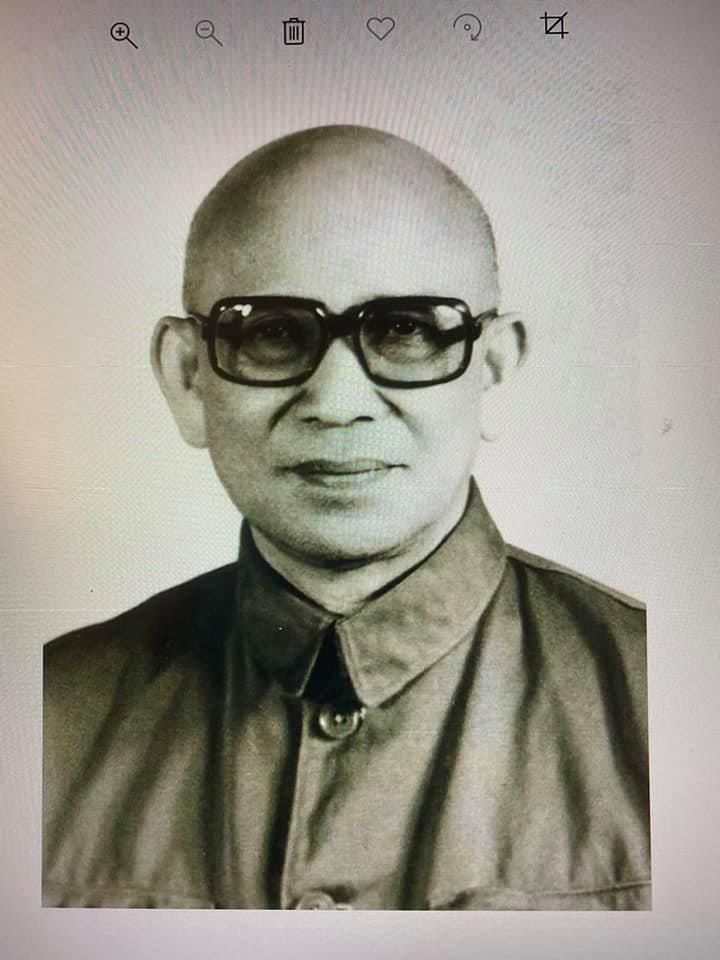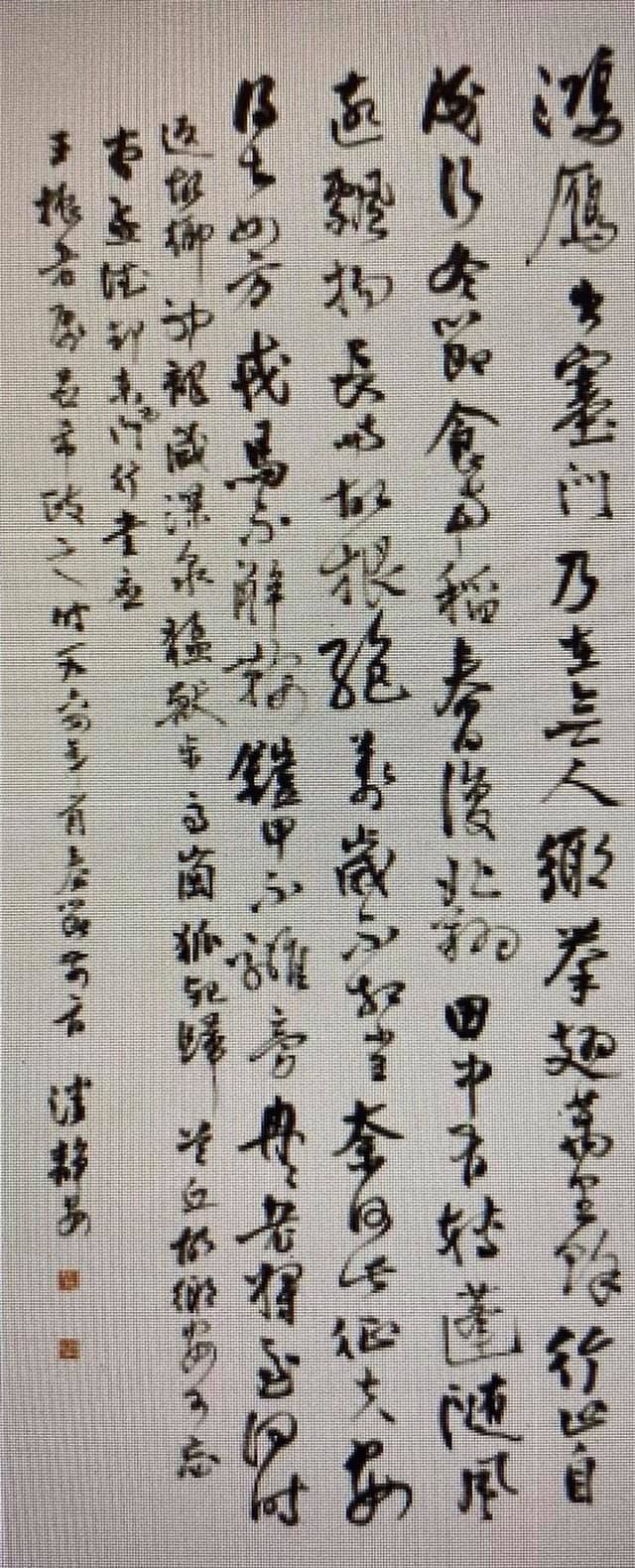Memoirs of a Loser 69: Central Media Department and Pan Jing'an
In the context of the Diaoyu Protection Movement and the breakthrough in Sino-US relations, the Chinese media was hesitant on the left and conservative on the right. It can be said that "The Seventies" seized the opportunity and seized the public opinion market of overseas and Hong Kong intellectuals, and its sales surged. At that time, we printed air editions on thin paper, and as soon as each issue was published, it was shipped by air to major cities in the United States, Canada, Europe, and Australia, where local bookstores or international students would pick up the copies for distribution. During the summer vacation of 1971 and 1972, many overseas students returned to Hong Kong and contacted our magazine one after another. I took turns seeing visitors, like a doctor doing a consultation, and it was quite busy. In Hong Kong, "The Seventies" is also popular in the tertiary education sector.
At that time, there was a trend of "recognizing China and Guanshe" (understanding China and caring about society) in academic circles. There are activists protesting to protect the Diaoyu Islands in Hong Kong, but most of them are study meetings and seminars organized by universities. I am often invited to give lectures at various colleges and universities. Basically, they are speaking good words for China and explaining the doubts that college and university academic circles have about China. At that time, some students called me "youth mentor". Later, I realized that I felt deeply guilty, so I mocked myself as "youth mislead teacher".
During this period, I made many new young friends. They took the initiative to get close to this leftist magazine, mainly to find a way out ideologically. They also provided me with new ideological trends in the Western and Hong Kong college circles, especially those in Taiwan. situation, Taiwanese people’s feelings and autonomous consciousness tendencies. I wrote down some letters from intellectuals or unique opinions I heard, and reported them to the leaders of the Hong Kong publishing industry. My purpose was actually to let the CCP, which was closed to the outside world at that time, know some of the facts, so as to prevent them from casually Articles with different opinions from us are judged as "enemies". I have always been very sensitive and disdainful of the behavior of "snitching". My reports will never express my likes or dislikes towards a certain person. As for the many letters that express sharp criticism of some of the CCP's practices, they will be reproduced in their original text.
Maybe it was the influence of the magazine that touched the top of the CCP. Maybe it was my report on the ideological trends in the West and intellectual circles in Taiwan and Hong Kong that caught the CCP’s attention. Some people said it was Zhou Enlai’s instructions. In short, I was introduced to the CCP’s activities in Hong Kong. Senior officials, including Qi Feng, then vice president of Xinhua News Agency. The person with the most and most direct contact is Pan Jing'an. His title is deputy general auditor of the Bank of China, but what he actually does should have nothing to do with the business of the Bank of China. His office was on the second floor of the old Bank of China (there was no new bank at that time). When you go to his office, you can often see big figures on the left, such as Fei Yimin, Wang Kuancheng, Wu Kangmin and others. Later someone told me that he was the head of the Investigation Department of the Central Committee of the Communist Party of China in Hong Kong and Macao. I didn't know what the Investigation Department did at the time, but judging from the organization Pan Jing'an introduced me to contact in mainland China, it was a fairly mysterious and powerful organization. I went to Beijing in 1977 and was arranged to talk to "minister" Luo Qingchang, but I didn't know what minister he was. Later I found out that he was the Investigation Department and the person in charge of Taiwan work. Pan Jing'an, known as Pan Gong, was called "Little Pan" by Zhou Enlai. Their relationship was extraordinary. Perhaps this gave Mr. Pan a certain degree of dominance among the CCP organizations in Hong Kong.
In 1972, I was invited to join the National Day viewing group. At my request, my fifth uncle, who was sent to the cadre school, was sent back to Beijing to meet me. He had not yet escaped the fate of the Cultural Revolution, but he told me many years later that my arrival and request to meet him had improved his situation.
Under Mr. Pan’s arrangement, my wife and her two daughters came to Hong Kong to work in 1974 on a “transfer” basis. They were placed in the editorial department of the Commercial Press and provided with housing. This is a big change in personal life.
After searching for information, we learned that the Investigation Department was an intelligence department and was directly under Zhou Enlai at that time. In 1983 this department was integrated into the Ministry of National Security. Mr. Pan, whose original name was Pan Zhu, was born in Hong Kong in 1916 and died in Beijing in 2000. He joined the Communist Party in 1938 and served as the confidential secretary of the Eighth Route Army of the Communist Party of China in Hong Kong during the Japanese occupation. The movie "When Will There Be a Bright Moon" tells the story of relocating a large number of cultural people stranded in Hong Kong to the mainland. The person actually responsible for the transfer was Pan Jing'an. Pan Gong is good at calligraphy and seal cutting. Until now, his calligraphy manuscripts are still seen in the auction market. He lives alone in Hong Kong and has no family members. He is kind to others, his language is humorous, and he has no official airs at all. I often went to his office to talk. After Lai Yi was transferred to Hong Kong, she had more contact with Pan Gong. By the late period of the Cultural Revolution in 1975 and 1976, Liyi was dissatisfied with China's extreme leftist tendencies and often questioned Pan Gong face to face, but Pan just kept silent. I think that because of his relationship with Zhou Enlai and Luo Qingchang, as well as his profound foundation in Chinese studies, he naturally had his own opinions on the Cultural Revolution, but he could not speak out. In 1976, "Seventies" was about to be relocated, so he personally went to plan a location for us, and later collected calligraphy fonts for the Tiandi Books we were going to establish. In 1982, he was transferred back to Beijing. By that time, "The Seventies" had already separated from the left. When I decided to leave the leftist camp, he did not talk to me, nor did Liyi and I ask him for his opinion. He has served the CCP all his life and has placed his destiny in the party. I think he is very kind and understanding if he does not prevent me from leaving. He was the catalyst for Lai Yi's transfer to Hong Kong. I am grateful and miss him. At the time of his death, Li Xiawen, former president of Ta Kung Pao, said: "Pan Jing'an is a rare breed among Communist Party cadres. It can be said to be extinct."


"Memoirs of a Loser" serial directory (continuously updated)
- Inscription
- break through
- Inside and outside the circle
- murderous
- torment
- pain
- Turbulent times
- choice
- That time period
- twisted history
- prophet
- liberals final blow
- my family background
- Life in occupied areas
- The paradise under the Wang regime
- Art and literature in occupied areas
- Father and the Occupied Area Drama
- Uncle Li's tragedy
- flee
- Fools teach experience, wise men teach history
- After the war, from Shanghai to Peking
- Ancient country customs
- When the swallows come
- Under the left wing trend of thought
- 1948 The tree fell and the hozens scattered
- Pig male, dog male, turtle male
- The success and failure of Apple
- How can you say goodbye to a spirit?
- The end of the free era
- Walking into the city early in the morning, I saw a dog biting someone
- Establish leftist values
- "Disastrous Faith"
- The cutest person is the most ridiculous person
- The green years of middle school
- Days abandoned by ideals
- talk about my father
- My father’s life-long struggle
- father's bruise
- The political legacy of inbreeding
- A gift that lasts a lifetime
- cradle of culture
- Love letters - the earliest writing
- The books I read in those years
- resurrection
- indispensable chapter
- Indispensable Chapter Two
- Indispensable Chapter Three
- Indispensable Chapter Four
- The final indispensable chapter
- There is no most miserable, only more miserable
- Where to go
- Liu Binyan’s inspiration
- Half an article by Xu Zhucheng
- Hong Kong people in the 1950s and 1960s
- popular culture memory
- The "socialization" period of the left
- The age of companionship
- Those peaceful days
- A turning point in Hong Kong’s history
- Blessings come with misfortunes
- The beginning of Hong Kong’s glorious era
- Who are we? Where are we going?
- The sorrow of a double life
- Background of the founding of "The Seventies"
- stand out
- Awakening, misunderstanding, connection
- Very useful idiot
- Take what is useful and throw it away if it is useless (Very Useful Idiot No. 2)
- Central Adjustment Department and Pan Jing'an
("Memoirs of a Loser" was previously serialized in "Apple Daily" and is now being continuously updated in Matters)
Like my work? Don't forget to support and clap, let me know that you are with me on the road of creation. Keep this enthusiasm together!



- Author
- More